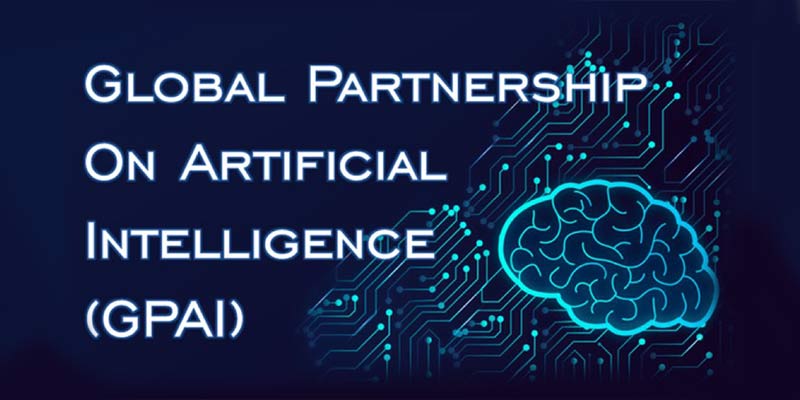- India
- Jul 04
- Kevin Savio Antony
Explainer - Global Partnership on Artificial Intelligence (GPAI)
Minister of State for Electronics and Information Technology Jitin Prasada chaired the meeting of GPAI Ministerial Council held in New Delhi on July 3.
The Ministerial Council of Global Partnership on Artificial Intelligence (GPAI) reached a consensus on the future vision of the multilateral body, which includes recognising transformative potential of AI and acknowledging the emerging risks and challenges posed by the new-age technology.
What is GPAI?
• Global Partnership on Artificial Intelligence (GPAI) is an international and multi-stakeholder initiative launched in June 2020 to guide the responsible development and use of AI, grounded in human rights, inclusion, diversity, innovation, and economic growth.
• GPAI was officially proposed by France and Canada at the G7 Summit in Biarritz in August 2019.
• Built around a shared commitment to the OECD recommendation on Artificial Intelligence, GPAI brings together engaged minds and expertise from science, industry, civil society, governments, international organisations and academia to foster international cooperation.
• The first-of-its-type initiative for evolving better understanding of challenges and opportunities around AI using the experience and diversity of participating countries, the alliance will look to bridge the gap between theory and practice by supporting advanced research and applied activities on AI-related priorities.
• GPAI is a congregation of 29 international partners including the European Union.
• India joined the group as a founding member in 2020.
• GPAI has a Council and a Steering Committee, supported by a Secretariat, to be hosted by the Organisation for Economic Cooperation and Development (OECD) in Paris, as well as by two Centers of Expertise — one in Montreal (CEIMIA, the International Centre of Expertise in Montreal for the Advancement of Artificial Intelligence) and one in Paris (at INRIA, the French National Institute for Research in Digital Science and Technology).
Highlights of the GPAI Ministerial Council meeting:
i) Reaffirmed Commitment: The members reaffirmed their commitment to the future vision of the GPAI, emphasizing the potential of human-centric and trustworthy AI for the benefit of all.
ii) 19-Point Common Agenda: The member countries agreed to a shared commitment to a 19-point common agenda, which addresses various aspects of AI development and governance.
iii) Election of New Chair: Serbia was elected as the lead chair of GPAI for 2024-25. The annual summit of the 29-member GPAI grouping is scheduled to take place in Serbia later this year.
iv) Key Consensus Points:
• Acknowledging the emerging risks and challenges posed by AI systems.
• Commitment to fostering trustworthy and human-centric AI.
• Collective commitment to the OECD recommendation on AI.
• Commitment to the UNESCO recommendation on the ethics of AI.
• Following the New Delhi 2023 GPAI Ministerial declaration.
v) Renewed Vision for GPAI: The members agreed to develop a renewed vision for GPAI through an integrated partnership with the OECD, ensuring equal footing for all current OECD members and GPAI countries under the GPAI brand, based on the OECD recommendation on AI.
vi) Promoting Synergies: The GPAI forum stressed the importance of promoting synergies with AI initiatives launched in other international groupings, such as the G20, G7 (including the Hiroshima AI Process), the Council of Europe, and the 2023 Bletchley Park AI Safety Summit.
vii) India’s Leadership: The 2024 GPAI New Delhi meeting underscored India’s leadership in the global AI discourse, highlighting its pivotal role in steering the ethical and inclusive development of AI.
(The author is a trainer for Civil Services aspirants.)

